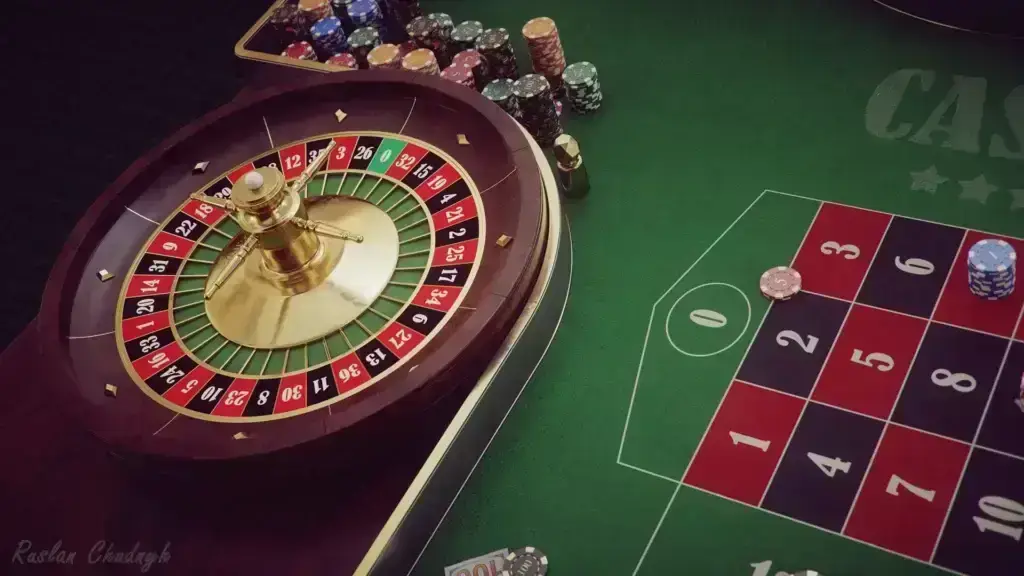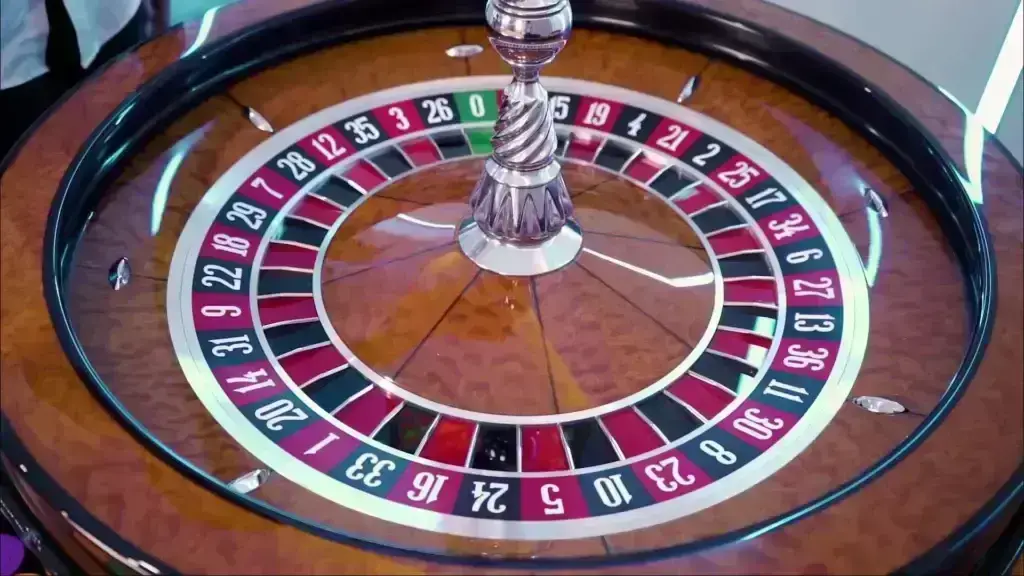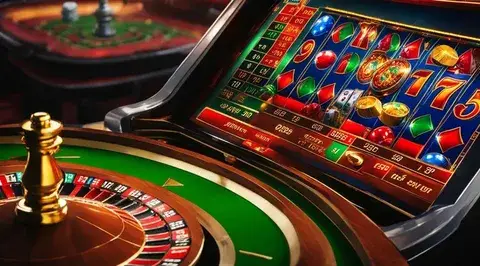Roulette is shrouded in myths of quick wins and crushing losses. But what is behind the spinning wheel and the pounding ball? In this article, we’ll separate fiction from reality and break down what the chances of winning at roulette really are, as well as look at strategies that can help improve your game.
About Roulette
Roulette appeared in France in the 18th century, and has been a casino symbol ever since. Its rules are simple – players bet on numbers, colours or combinations and then watch as the croupier spins the wheel and launches the ball. The disc consists of 37 or 38 sectors, depending on the version (European or American), where each cell is marked with a specific number and colour (red or black). The popularity of gambling entertainment is due to its simplicity, fascination and the possibility of getting a big win.
The essence of roulette is pure chance. Each spin of the wheel is an independent event, the result of which cannot be predicted. It is this unpredictability that creates excitement and excitement, making players watch the ball move with hope. In this game everything is decided by chance, and that is what makes roulette so exciting.
What are the odds of winning at roulette: estimating the probability
 Roulette maths plays a key role in determining the probability of winning. In the European version, due to the presence of only one zero, the mathematical expectation for the player is higher than in the American version with two zeros. This means that playing European roulette is more profitable in the long run.
Roulette maths plays a key role in determining the probability of winning. In the European version, due to the presence of only one zero, the mathematical expectation for the player is higher than in the American version with two zeros. This means that playing European roulette is more profitable in the long run.
What are some ways to increase your chances of winning at roulette:
- Betting on a specific number: the odds are 1 in 37, that is, 2.7 per cent. This is the riskiest bet, but also with the highest payout – 35 to 1. In practice, such decisions are more often made by those who are willing to take a risk for a big score.
- Betting on colour (red or black): the probability is almost 48.6%, making it one of the safest bets. The payout is 1 to 1, so it is attractive to those who prefer a less risky game.
- Even/Odd bets also have a probability of around 48.6%, but it is important to remember the existence of the “0” sector, which brings an advantage to the casino. In the American version of roulette with two cells (0 and 00), the house advantage is even greater.
Despite the exciting excitement, it is important to remember the mathematical advantage of the casino, which provides itself a small but constant share of each bet. It is what shifts the odds of winning at roulette not in the player’s favour, making the probability of winning just under 50%.
How to increase the odds and win at roulette
Players over the years have tried to find the perfect strategies for roulette. One of the most popular is the Martingale method, in which the player doubles the bet after each loss. It aims to ensure that the winnings cover all previous losses. However, it requires a large budget and a willingness to take risks.
What other strategies are available:
- The D’Alamber system suggests increasing the bet by one unit after a loss and decreasing it after a win. This is a more gentle option than Martingale, as it requires less investment and reduces the risk of bankruptcy.
- Fibonacci uses a sequence of numbers, where each next bet is equal to the sum of the previous two. This strategy also helps minimise risk, but requires discipline and following the sequence precisely.
- Paroli is a positive progressive tactic in which the bet is doubled after every win rather than every loss. This system is suitable for players looking to capitalise on their hot streak of luck.
How do I maximise my roulette odds? There is no perfect way, but managing your bankroll and choosing high probability bets can help minimise losses. It is important to realise that every strategy carries risks, and you should always bet as much as you can afford to lose.
How to choose an online roulette casino
When choosing a platform, it is important to consider several factors: licence and reputation, player reviews and bonus programmes. Focus on trusted sites, this will help increase the chances of winning at roulette and minimise the risks of losing money.
Selection criteria:
- Licence and reputation. Legal casinos with a licence ensure fair play and data protection. Check the site’s authorisation and make sure it is issued by a reputable regulator such as the MGA or UKGC.
- Player Reviews. Real people’s opinions can give insight into the weaknesses and strengths of the platform. Research other users’ experiences to learn about their impressions of the games and payouts.
- Bonuses and promotions. Many casinos offer bonuses, but it is important to read their terms and conditions. Some prizes may have high wager (wagering) requirements, making them unprofitable.
Conclusion
 The casino always maintains an advantage and this is important to remember. The chances of winning at roulette always depend on luck and the chosen strategy, but none of them guarantees success. Tactics can help you better control the game and manage your bets, but winnings still depend on chance.
The casino always maintains an advantage and this is important to remember. The chances of winning at roulette always depend on luck and the chosen strategy, but none of them guarantees success. Tactics can help you better control the game and manage your bets, but winnings still depend on chance.
Responsible approach to the game is the main condition for roulette to remain an exciting entertainment and not a source of problems.
 en
en  de
de  ar
ar  es
es  hi
hi  fr
fr  nl
nl  it
it  pt
pt  el
el 









